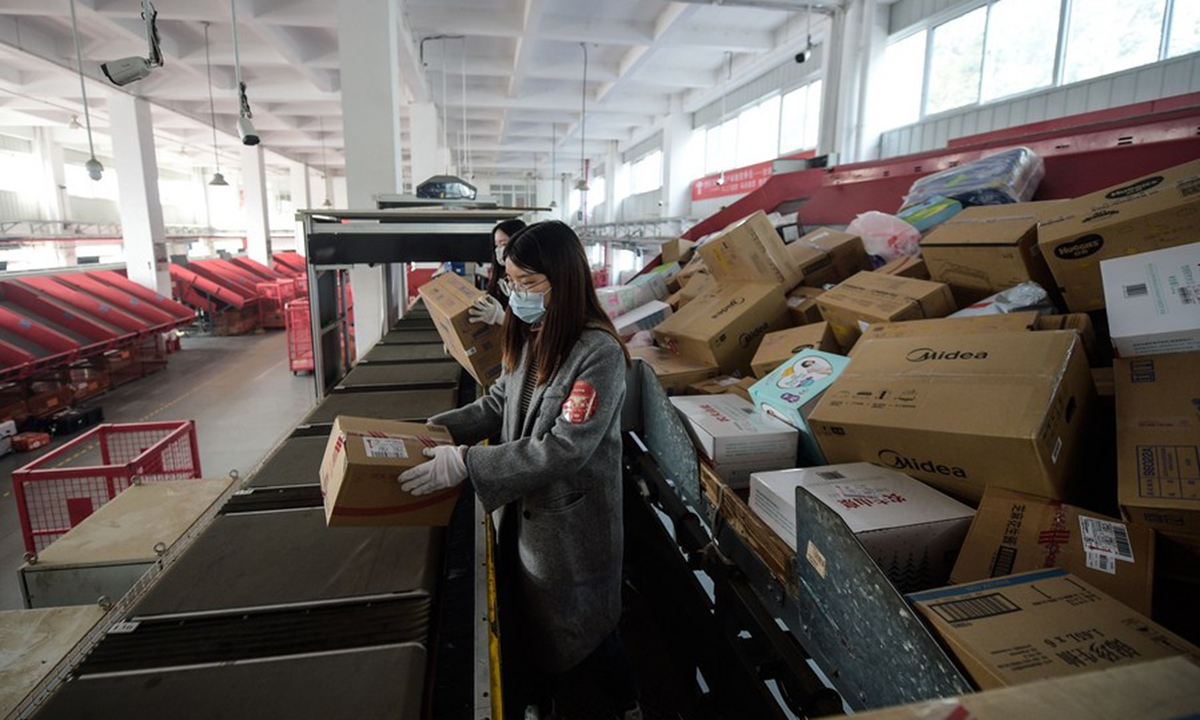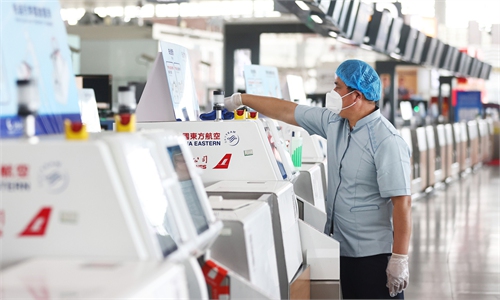E-commerce giant JD.com allocates $62m for front-line employees amid 'common prosperity' target

Staff members sort parcels at a distribution center of E-commerce giant JD.com in Beijing, capital of China, Nov. 11, 2020. (Xinhua/Peng Ziyang)
Online marketplace JD.com announced on Friday that it will allocate more than 400 million yuan ($62 million) to increase welfare subsidies for more than 200,000 front-line employees who remain at work over the Spring Festival holidays, a move to show the internet firms are using their massive profits to advance "common prosperity" in China.
The company also said the plan, which aims to achieve a trillion-dollar output value in rural areas within three years, has achieved 320 billion yuan at the end of 2021, and it is expected to achieve the goal ahead of schedule.
The giant said through a smart supply chain center in Wugong County, Northwest China's Shaanxi Province, the 300,000 kiwifruit growers in surrounding areas have become rich and increased their income. Also with help of a large-scale intelligent logistics warehouse in Lhasa, Southwest China's Xizang Autonomous Region, the delivery time for farmers and herdsmen to buy major appliances has been shortened from one or two weeks to one or two days.
Chinese internet giants, including Alibaba and Tencent have taken different measures to ensure a stable input for the "common prosperity" in terms of technology innovation and employment.
China's e-commerce giant Alibaba announced in September last year that it would invest 100 billion yuan in total before 2025 to support China's pursuit of common prosperity for all, joining a league of Chinese companies that are moving swiftly to contribute to the country's long-term development goal.
Alibaba has put forward a 10-point action plan to support the pursuit of common prosperity for all, including establishing tech industry funds to help push the digital construction of less-developed areas across the country, the company said.
Tencent announced in August that it plans to set up a 50-billion-yuan fund as a common prosperity special plan. The money will be used to help lift up low-income groups, contribute to rural economic development and support grass-roots education.
Chinese officials also said during different occasions that the drive for "common prosperity" is not equal to "killing the rich to help the poor."
In addition to the input, Chinese authorities are also taking measures to safeguard workers' rights and further strengthen anti-monopoly regulations in the new service industry.
On Monday, Chinese delivery giants Meituan, Ele.me have launched flexible measures for their riders amid a cold snap, and heavy snowfall in parts of the country. Measures include canceling the assessments over delayed delivery and bad reviews, while also providing free lunch and cold-resistant food and drinks for riders.
Last week, the Ministry of Transport in China summoned four online freight platform companies, including on-demand delivery service provider Huolala and Didi Freight, and required them to safeguard the legitimate rights and interests of drivers.
Global Times



